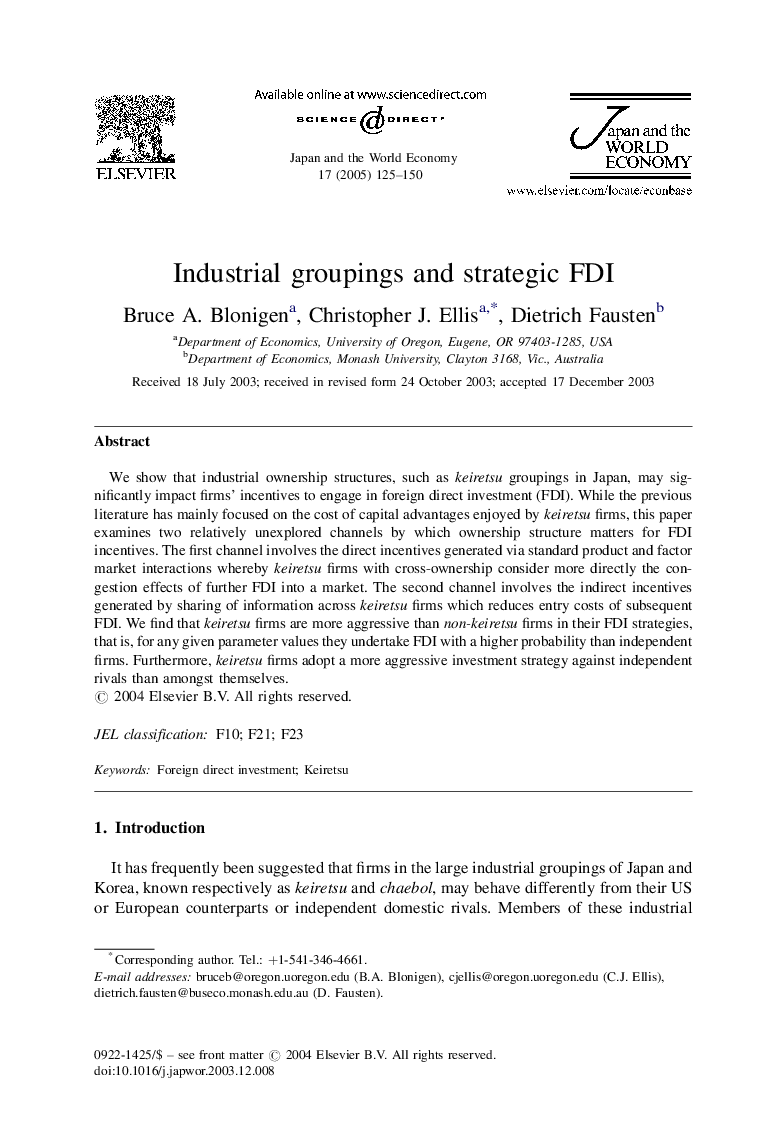| Article ID | Journal | Published Year | Pages | File Type |
|---|---|---|---|---|
| 9553142 | Japan and the World Economy | 2005 | 26 Pages |
Abstract
We show that industrial ownership structures, such as keiretsu groupings in Japan, may significantly impact firms' incentives to engage in foreign direct investment (FDI). While the previous literature has mainly focused on the cost of capital advantages enjoyed by keiretsu firms, this paper examines two relatively unexplored channels by which ownership structure matters for FDI incentives. The first channel involves the direct incentives generated via standard product and factor market interactions whereby keiretsu firms with cross-ownership consider more directly the congestion effects of further FDI into a market. The second channel involves the indirect incentives generated by sharing of information across keiretsu firms which reduces entry costs of subsequent FDI. We find that keiretsu firms are more aggressive than non-keiretsu firms in their FDI strategies, that is, for any given parameter values they undertake FDI with a higher probability than independent firms. Furthermore, keiretsu firms adopt a more aggressive investment strategy against independent rivals than amongst themselves.
Related Topics
Social Sciences and Humanities
Economics, Econometrics and Finance
Economics and Econometrics
Authors
Bruce A. Blonigen, Christopher J. Ellis, Dietrich Fausten,
